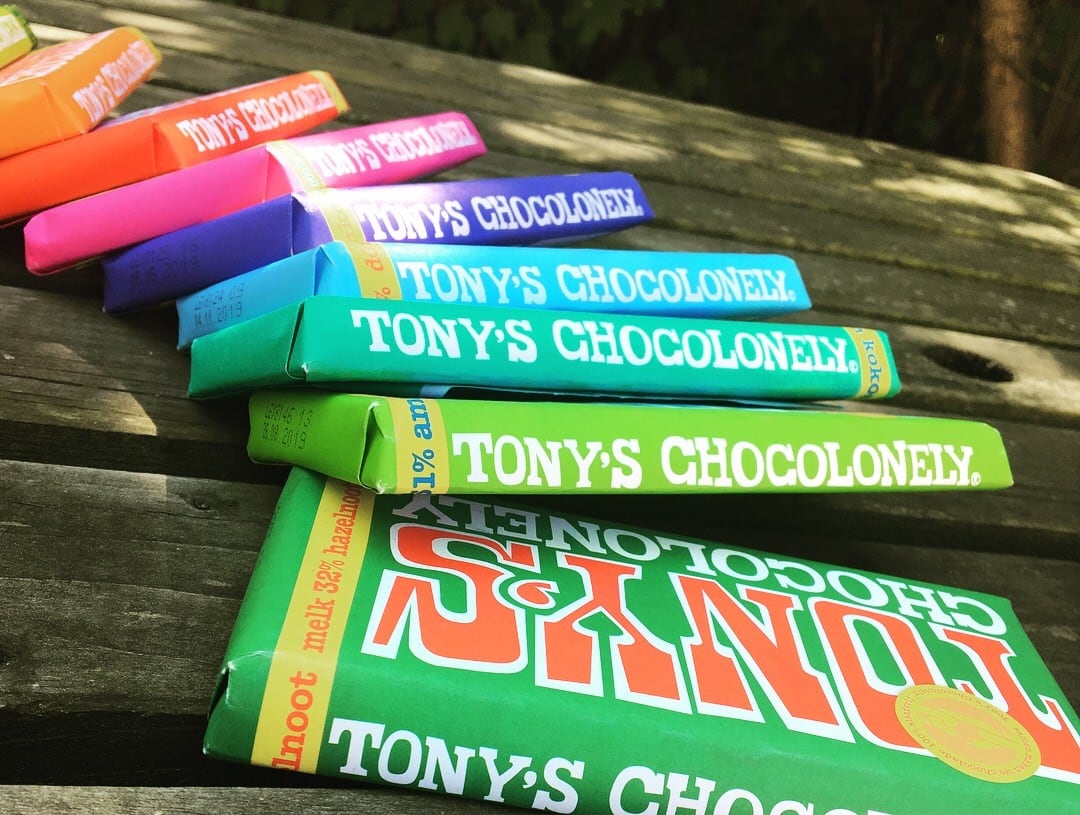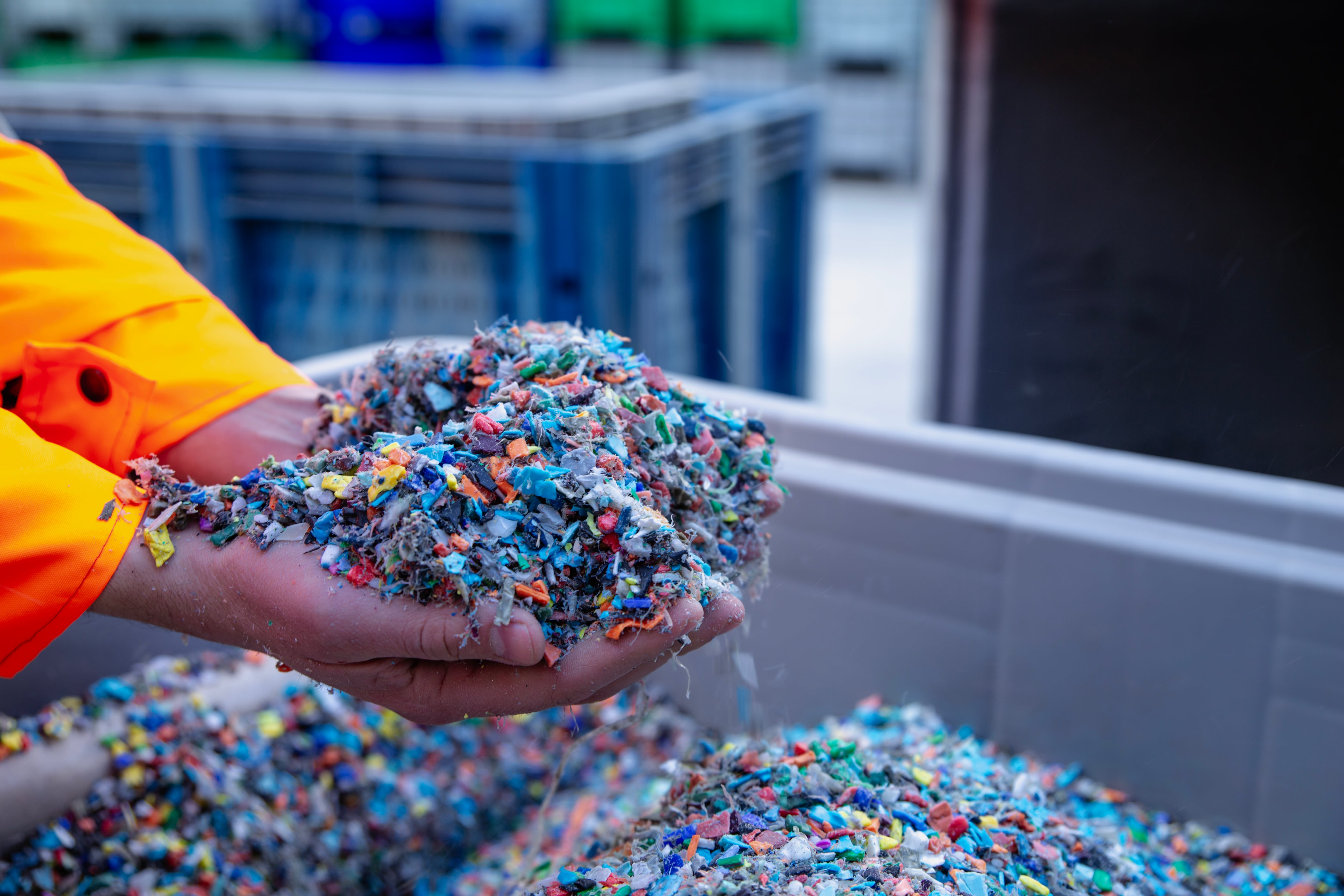Historically high cocoa prices haven’t dimmed the runaway success of Dutch chocolatier Tony’s Chocolonely.
It announced 33% growth and revenue of €200m in its FAIR report published on February 4, 2025.
“The latest Annual Fair Report shows the progress we’ve made to rapidly grow our impact and our business hand in hand,” says Douglas Lamont, CEO of Tony’s Chocolonely.
Highlighting its fight against what it states are the three big problems in cocoa – lack of living income, child labour and deforestation – the firm reports it’s made strong progress in West Africa. “Our sourcing principles are having a positive effect on farming families,” he adds.
The chocolatier details three key milestones from the past 12 months, stating it has achieved record revenue, halved cocoa’s climate impact and doubled farm resilience. The annual report covers the brand’s financial year from October 2023/2024, which follows the cocoa growing and harvesting calendar from October 1, 2023 to September 30, 2024.

The plight of cocoa
In recent cocoa growing seasons, crop shortages have driven cocoa prices up. With no end in sight, companies and consumers are left with little choice but to suffer the financial blow. Over the past 12 months alone, cocoa prices have risen significantly, from approximately $3,600 per metric tonne in October 2023 to highs of around $12,600 in December 2024.
Describing it as “one of the most volatile years in cocoa market history” the company highlights that alongside this already challenging time for cocoa, crop yields have also decreased by 20%.
“This year has undoubtedly presented significant challenges to the industry with rising cocoa prices,” says Lamont. “In spite of that, Tony’s Chocolonely is growing, and our impact on the ground in West Africa is growing too,” Lamont adds.
Scaling cocoa responsibly
Tony’s growth came primarily from its expansion across the US, which saw the brand’s business increase by 86% due to recent launches in nationwide retailers Walmart and Kroger.
In addition, the firm’s collaborative sourcing initiative, Tony’s Open Chain, is outpacing its brand growth with a 71% increase in the number of ethical beans sourced. “This is thanks to new sourcing partners, including Mr Beast Feastables and UK supermarket Waitrose,” says Lamont.
Tony’s Open Chain, described as a way to collaborate on cocoa while competing on chocolate, sets out the brand’s ambition to end cocoa exploitation together and provides other confectioners and companies with the opportunity to become Mission Allies and source its cocoa beans through its Open Chain principles.
By becoming a Mission Ally, their cocoa beans are sourced according to Tony’s Five Sourcing Principles, which include paying a living income price for all cocoa sourced from communities where the Child Labor Monitoring and Remediation System is fully in place. Tony reports that child labour cases at their long-term partner cooperatives are less than 4%, compared to an industry average, which sits at more than 10 times higher, at 47%.
“Our report this year is more evidence that our Five Sourcing Principles model can work at scale and deliver step-change long-term benefits to cocoa farmers and their families, not least in creating a pathway to structurally eradicate child labour from the cocoa value chain,” shares Lamont.
While recognising that the brand has grown rapidly, Tony also notes how its cocoa volumes have grown faster. “We’ve welcomed many new partners, our Mission Allies, who have chosen to source their cocoa through Tony’s Open Chain, including some of the fastest-growing chocolate brands and household-name grocers,” says Lamont.
Building resiliency and ending exploitation
In addition to ending exploitation in the cocoa sector, Tony’s efforts strive to help develop a more resilient supply chain that is more resilient to climate change-related concerns and hurdles. During the current crop-growing season, cooperatives working with Tony’s Open Chain reported crop losses of 11%, half the industry average. As a result, the brand raised its cocoa bean volumes to 30,000 million tonnes in orders, signalling a 71% increase year-on-year.
To inspire systemic change, Tony believes it’s vital that the brand shows the industry that the business model delivers for its shareholders. “The figures show we’re on the right track, with significantly increased net revenue while delivering a positive EBITDA, built on strong growth in the US and many of our core European markets,” Lamont shares.
Tony’s mission is in response to millions of West African cocoa farmers unable to earn a living income, resulting in poverty, illegal labour, deforestation, and underinvestment in their farms, leading to supply loss. According to Tony, today, more than 1.5m children work illegally on cocoa plantations, with forced labour affecting 30,000 individuals. Furthermore, 80-95% of rainforests in Côte d’Ivoire and Ghana have been lost since 1955, with cocoa production causing one-third of this destruction.
“Thanks to the close collaboration with all our Mission Allies, we are showing that by acting together, we can end exploitation in cocoa,” Lamont adds.



